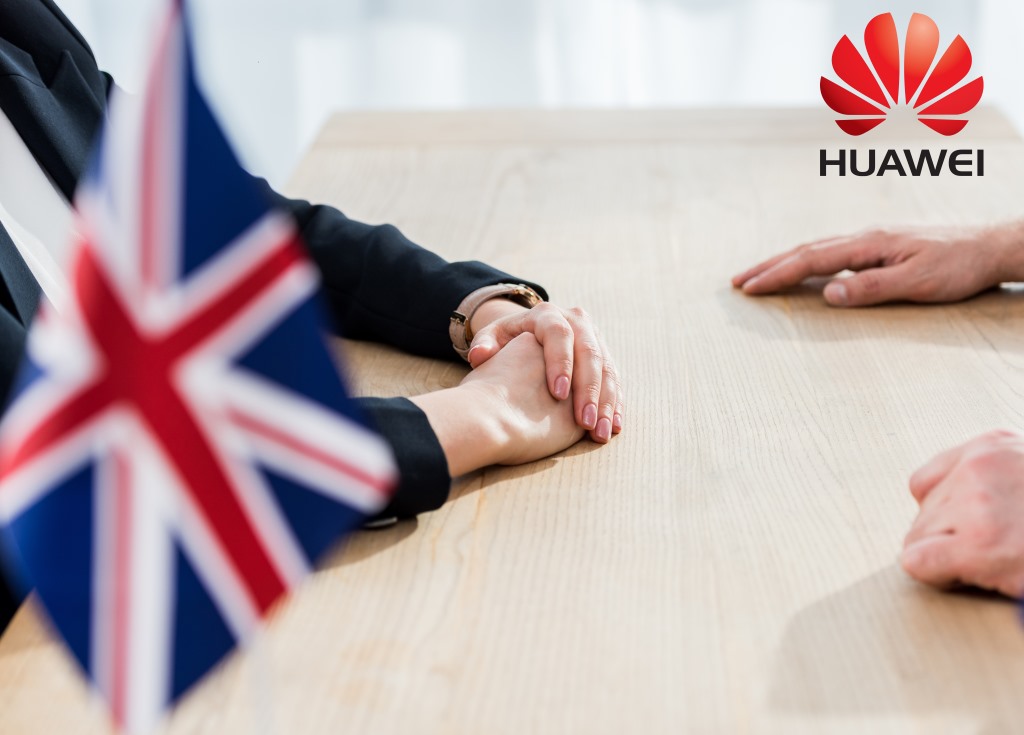Amidst security concerns, U.K. says Huawei won’t be involved in critical infrastructure

U.S. has banned the use of Huawei products by the country’s government. At the end of 2019, telecommunications equipment company unveiled it’s new 5G Innovation and Experience Center in the United Kingdom. The center is part of a larger 5G rollout throughout the U.K. and other countries around the globe.
Huawei is one of the leading providers of information and communications technology in the world. It began rolling out it’s new 5G service a few years ago and as of 2019, more than 20 cities and towns in the U.K. have 5G. And, according to Huawei 90 percent of the U.K. population could have 5G coverage within the next two years.
However, according to a new report by Bloomberg, the U.K. plans to keep the company out of critical infrastructure. [optin-monster-shortcode id=”dv4jqlr9fih8giagcylw”]
“I just want to make it very clear, Huawei will not be involved in our critical national infrastructure,” U.K. Culture Secretary Nicky Morgan told Bloomberg Television on Wednesday. “The security, the safety of that infrastructure is absolutely paramount when the government is going to be making that decision.”
The news comes amidst global security concerns about Huawei. A country’s critical infrastructure is a prime target for nation-state attackers and many are taking additional precautions to ensure their nation’s security infrastructure is better protected.
Huawei has been at the center of espionage allegations over its 5G network equipment. The company has faced allegations that its wireless networking equipment could contain backdoors that would enable surveillance by the Chinese government.
In light of the allegations, the United States government called on it allies to ban the use of Huawei products related to 5G technology. In 2018, the United States signed a law banning the government from purchasing Huawei equipment.
Similar allegations have been lobbied at Chinese telecommunications company ZTE and the U.S. government banned the purchase of ZTE products as well.
Huawei sued the United States in March 2019, claiming that the government refused to provide them with due process over the aforementioned restrictions. In August 2019, the company released a statement in response to the country’s criticism.
“For the past several months, the US government has been leveraging its political and diplomatic influence to lobby other governments to ban Huawei equipment. Furthermore, it has been using every tool at its disposal – including both judicial and administrative powers, as well as a host of other unscrupulous means – to disrupt the normal business operations of Huawei and its partners,” the press release said. “The fact remains that none of Huawei’s core technology has been the subject of any criminal case brought against the company, and none of the accusations levied by the US government have been supported with sufficient evidence. We strongly condemn the malign, concerted effort by the US government to discredit Huawei and curb its leadership position in the industry.”
The United States government isn’t the only organization that has been critical of Huawei. Reports from U.K.’s Huawei Cyber Security Evaluation Centre (HCSEC) Oversight Board, which was created by the country’s National Cyber Security Centre, has raised concerns about the company’s security practices.
“HCSEC has continued to find serious vulnerabilities in the Huawei products examined. Several hundred vulnerabilities and issues were reported to UK operators to inform their risk management and remediation in 2018. Some vulnerabilities identified in previous versions of products continue to exist,” the HCSEC’s 2019 report says. “If an attacker has knowledge of these vulnerabilities and sufficient access to exploit them, they may be able to affect the operation of the network, in some cases causing it to cease operating correctly.”
The U.K. has yet to decide whether the vendor will play a role in developing the country’s 5G telecommunications networks. However, in the Bloomberg report, Morgan emphasizes that 5G and Huawei have already benefited the U.K. and could impact the country’s future.
“5G is very important — and the roll-out of 5G — in terms of encouraging tech companies to be based here, so there are a number of different factors in making that decision,” Morgan said. “Huawei already have a part that they are playing in our 4G and 5G networks.”








